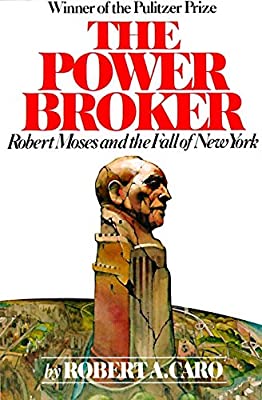
The Power Broker
Robert Moses and the Fall of New York
I listened my way through this book on Audible intermittently over a year. The narration of Robertson Dean is such a soothing and nostalgic voice: he sounds like a city beat investigative reporter laying everything out in an exhausted and exhaustive report. This is a marathon of an audiobook but honestly I don't think I would have been up for the marathon of reading the physical book anyway.
Some of the themes that Caro sets out in this text are the manipulation of public sentiment and the media—the New York Times is regularly criticized in his recounting of history for failing to grasp the significance of the bureaucratic power grabs that were occurring throughout Moses' long career. He also often highlights times when critics of Moses also praised him for his ability to get things completed and built, even if those things were evil or objectionable. I find this an interesting habit throughout the work, because I see the whole biography of Moses' work as struggling to decide whether Moses was a great man or not. It will spend considerable time tearing down Moses' ethical compass, highlight his utter misanthropy and racism, but it does more work than most texts to place the myth of him as a great, driven, nearly superhuman bureaucrat on solid ground.
Moses was not a great man. He was a deeply privileged, bullying man who understood the machine he operated in very well. His ability to "get things done" does not counterbalance his misanthropy and malevolence.
No writing on this book would be complete without mentioning its companion, its inverse really, The Death and Life of Great American Cities. This is person-centered "great man" story of New York City, and that is a scientific assessment and philosophical treatise of life in the city as it is and as it ought to be. Read this book to learn how we got here, then read that one to learn where we should go.
This seems as good a place as any for me to list out more reasons I dislike Robert Moses:
- He heated pools built in white neighborhoods and not in black neighborhoods because he believed (or more likely used as a fig leaf) the popular notion that black people were more tolerant of cold (this is mentioned in the book).
- He lost Brookyn the Dodgers
- He tried to build an elevated highway straight through midtown that would have gone around the Empire State Building on either side.
- He tried to build a highway through Central Park.
- He tried to build a highway through Greenwich Square, which was part of how Jane Jacobs came to write her books, so some good with the bad there.
- He fought the MTA and defunded it (in the book).
Citation
Robert A. Caro. The Power Broker: Robert Moses and the Fall of New York. 2011. Audiobook.